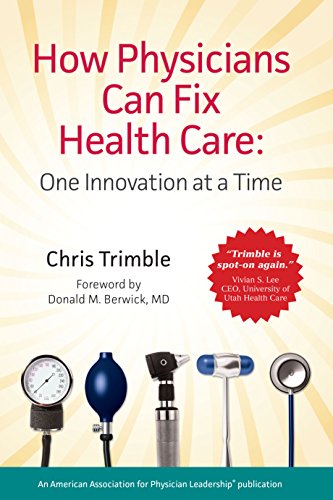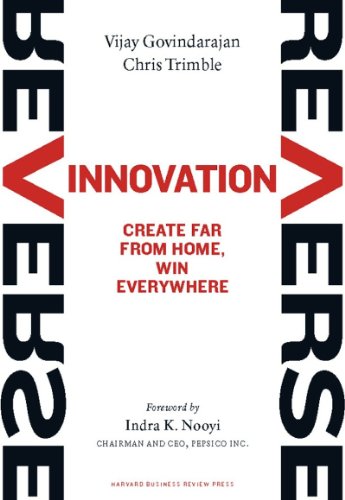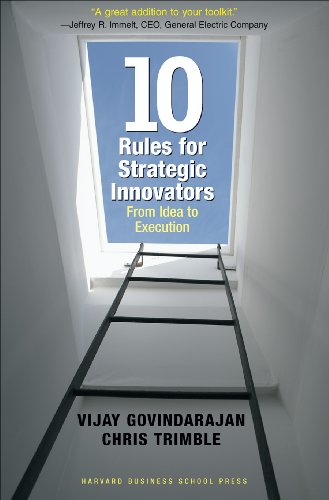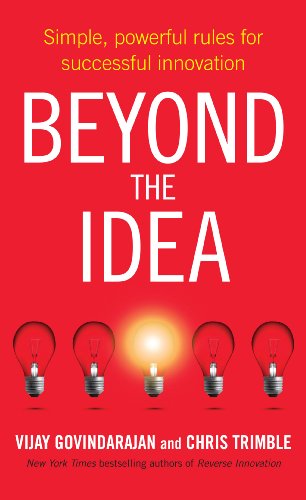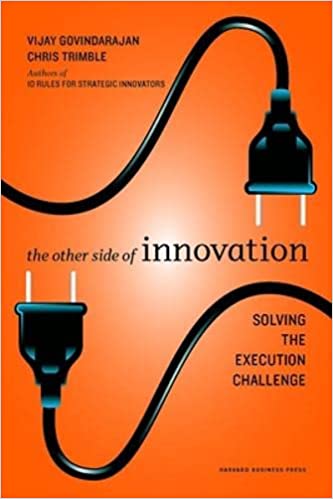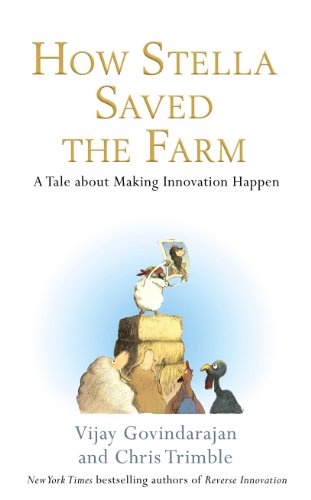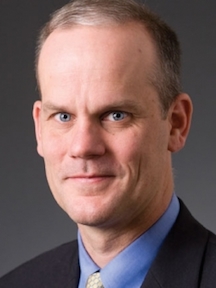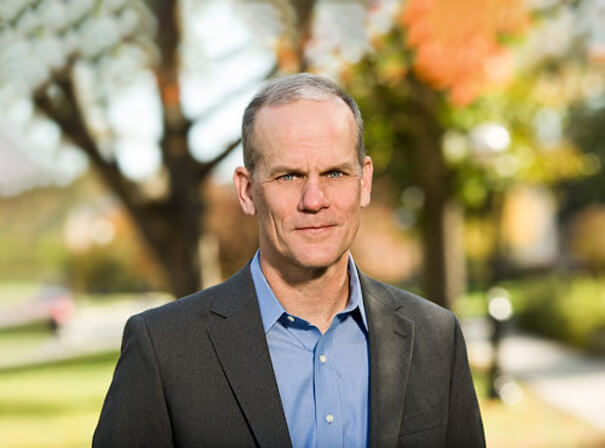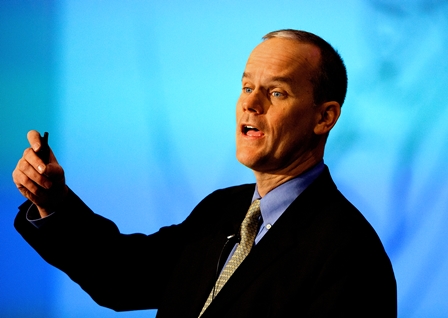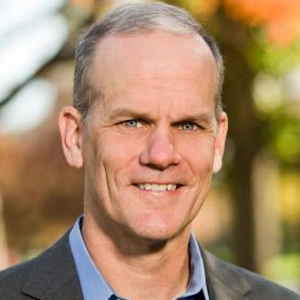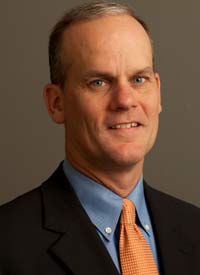Biography
Chris Trimble has dedicated more than ten years to studying a single challenge that vexes even the best-managed organizations: how to execute an innovation initiative.
In September 2010, a decade of research came to fruition with the publication of Chris’s landmark book, The Other Side of Innovation: Solving the Execution Challenge, with Vijay Govindarajan. More recently, in April 2012, Chris and Vijay published Reverse Innovation: Create Far From Home, Win Everywhere, which applied their research to the specific challenge of innovating to propel growth in emerging markets.
Notable articles include “Stop the Innovation Wars,” with Vijay Govindarajan, in the July-August 2010 Harvard Business Review, which won a McKinsey Award, second place, for the magazine’s best articles of the year, and “How GE is Disrupting Itself” in the October 2009 Harvard Business Review, with Jeff Immelt and Vijay Govindarajan.
Chris first broke into the forefront of executive consciousness with his December 2005 book Ten Rules for Strategic Innovators – from Idea to Execution. In June 2006, the Wall Street Journal published a Top Ten Recommended Reading list that included Ten Rules alongside Freakonomics, The Tipping Point, and Blink. Strategy & Business magazine recognized Ten Rules as the best strategy book of the year.
Chris’s career mixes rigorous academic research with hard-nosed practical experience. His interest in innovation within large organizations developed early in his career, when he was a submarine officer in the United States Navy.
Chris is currently on the faculty at the Tuck School of Business at Dartmouth and at The Dartmouth Center for Health Care Delivery Science. He is currently immersed in a multi-year effort to apply his work to the specific challenge of innovation in health care delivery.
Chris is a frequent keynote speaker and has spoken all over the world. He has also published in the MIT Sloan Management Review, California Management Review, BusinessWeek, Forbes, Fast Company and The Financial Times. He holds an MBA degree with distinction from the Tuck School, and a bachelor of science degree with highest distinction from the University of Virginia.
Videos
Chris Trimble: why adopting a reverse innovation approach will transform health care
Speech TopicsExpand each topic to learn more
Today's high-growth hot spots are all in the developing economies, which will account for a jaw-dropping twothirds of global economic growth over the next generation. Such facts and figures are now a preoccupation in many boardrooms. What is less well understood is what it will take to win.
For decades, most global corporations have followed a simple strategy: Create great products and services for home markets, and then export them. It has worked well enough in the past, but it is good enough no longer. The needs and opportunities in the developing world are just too distinct.
As a result, corporations must learn a new trick: Reverse Innovation. They must learn to innovate in the emerging economies, and then bring the innovations home.
“Genius is one percent inspiration, ninety-nine percent perspiration.”
Thomas Edison said it over a century ago. Nobody listened.
When companies launch innovation initiatives, they focus almost all of their time and energy on that initial one percent — the thrilling hunt for the breakthrough idea. They draw guidance from countless books and articles that treat innovation as though it is synonymous with creativity.
It is not. The reality is that an idea is only a beginning. Innovation is not just the much-anticipated light-bulb moment. It is also a long, hard journey — from imagination to impact.
We can’t wait for policy makers on Capitol Hill to save our troubled health care system. Instead, we need a new generation of health care leaders -- physicians and executives alike -- that are ready to remake the system from the grass roots, through innovation and entrepreneurship. While health care may seem impossibly complex, the reality is that it is hard to walk more than ten yards without tripping over an idea or an innovative pilot project with tremendous potential. This presentation will show why these pilots so rarely achieve full potential, and what to do about it.
Testimonials
Booksby Chris Trimble
Blog Posts

Resilience Lessons From an NFL Player Who Turned Life into Magic
Resilience keynote speaker Jon Dorenbos shares how to turn adversity into action through mindset, forgiveness, and authentic leadership strategies.
Read More
The Top 3 Keynote Speaker Trends That Will Define Your Events in 2026
2026 event planning starts now: discover the keynote speakers and themes that transform audiences through AI ethics, psychological safety, and leadership.
Read More
How Pros Stay Steady To Engage & Interact With Their Event’s Audience
Stop second-guessing your audience's reactions. Learn how veteran emcee Scott Bloom reads rooms without losing confidence during live events.
Read More
The One Life Question That Separates Victims From Victors
One powerful question changed how keynote speaker John O'Leary chose to live his life. Discover the victim-or-victor framework that works for any challenge.
Read More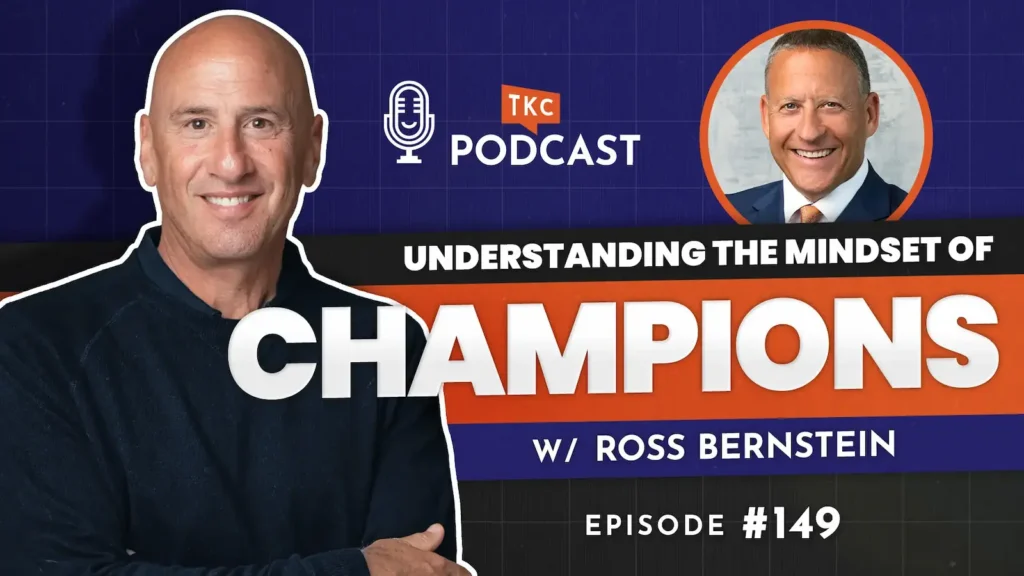
Insights from Ross Bernstein on What Champions Do When Nobody’s Watching
Learn how champions think differently and build winning habits that transform teams from talented to unstoppable with peak performance speaker Ross Bernstein.
Read More
7 Year-End Lessons From Keynote Speaker Every Event Planner Needs Before 2026
Learn 7 powerful year-end lessons from top keynote speakers to transform your event planning strategy and personal growth in 2026.
Read MoreRelated Business Leadership Speakers
Get in TouchContact US
Fill out the form so we can best understand your needs.
A representative from The Keynote Curators will reach out to you.

